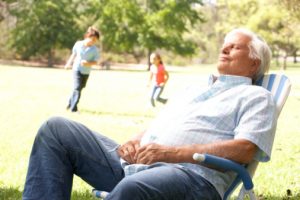 Presented at the European Association for the Study of Diabetes, researchers from the University of Tokyo presented that excessive daytime sleepiness and long naps are associated with an increased risk of developing type-2 diabetes.
Presented at the European Association for the Study of Diabetes, researchers from the University of Tokyo presented that excessive daytime sleepiness and long naps are associated with an increased risk of developing type-2 diabetes.
Sleep is essential for good health, along with healthy eating and physical activity. Globally, excessive daytime sleepiness is seen as a large problem and many individuals partake in daytime naps to compensate for their fatigue. Daytime naps can vary in length, from minutes to even hours; napping may be regularly scheduled, or infrequent and based on the level of tiredness. Napping may help those who lack nighttime sleep due to a sleep disorder.
Advertisement
A meta-analysis on a variety of health databases was conducted in order to determine a link between daytime sleepiness, napping and a risk of type-2 diabetes. 683 studies were initially found, but only 10 were deemed suitable for use. The 10 usable studies included 261,365 Asian and Western subjects. Excessive daytime sleepiness was determined by individuals answering questionnaires with questions like, Do you have a problem with sleepiness during the daytime?
Findings revealed excessive daytime sleepiness increased the risk of developing type-2 diabetes by 56 percent, and long naps over 60 minutes increased the risk of diabetes by 46 percent. Naps shorter than 60 minutes did not have an association with an increased risk of type-2 diabetes.
In their report, authors of the study said, “Daytime napping might be a consequence of night-time sleep disturbance such as obstructive sleep apnea (OSA). Epidemiological studies have shown that obstructive sleep apnea is independently linked to blockages (ischaemia) of heart arteries, stroke, fatal and non-fatal cardiovascular events, and all-cause mortality.”
They later concluded, “Several studies have demonstrated the beneficial effects of taking short naps less than 30 minutes in duration, which help to increase alertness and motor skills. A short nap finishes before the onset of deep slow-wave sleep. Entering deep slow-wave sleep and then failing to complete the normal sleep cycle can result in a phenomenon known as sleep inertia, in which a person feels groggy, disoriented, and even sleepier than before napping. Although the mechanisms by which a short nap might decrease the risk of diabetes are still unclear, such duration-dependent differences in the effects of sleep might partly explain our findings.”
